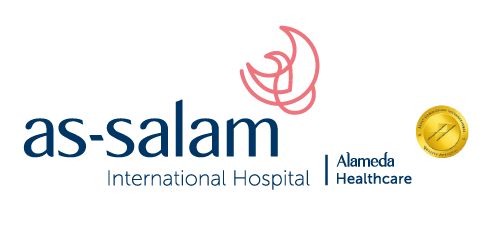World IBD Day 2021
As-Salam International Hospital celebrated the Inflammatory Bowel Disease day with you on Wednesday 19/5/2021 at Maadi branch from 9 AM till 9 PM with 10% discount on GIT department consultation services.
Inflammatory Bowel Disease (IBD) represents a group of intestinal disorders that cause prolonged inflammation of the digestive tract which is responsible for breaking down food, extracting the nutrients, and removing any unusable material and wasted products.
Inflammation anywhere along the digestive tract interferes with this normal process.
The Causes Of Inflammatory Bowel Disease
The exact cause of Inflammatory Bowel Disease remains unknown. Previously, diet and stress were suspected, but now doctors know that these factors may aggravate but aren't the cause of IBD, these risk factors are:
Family history and genetics
People with a close relative who has Ulcerative Colitis have a higher risk of developing it themselves.
The immune system
In a healthy immune response, the inflammation fades away when the infection is gone.
In people with IBD, however, digestive tract inflammation can occur even when there’s no infection. The immune system attacks the body’s cells instead. This is known as an autoimmune response.
Smoking
Smoking is one of the main risk factors for developing Crohn’s disease.
Age
Most people receives a diagnosis around 15–30 years of age or after 60 years of age.
Environmental factors
People who lives in urban areas and industrialized countries have a higher risk of developing IBD.
The Symptoms Of Inflammatory Bowel Disease
The symptoms of IBD may vary according to the type, location, and severity.
People might experience periods when symptoms worsen, and periods with a few or no symptoms. Flares may vary in amount, intensity, and duration.
Common symptoms of IBD:
Diarrhea.
Fatigue.
Abdominal pain and cramping.
Blood in your stool.
Loss of appetite.
Unintended weight loss.
Prevention Is Better Than Cure!
You may ask yourself how can I prevent getting IBD or how can I stay away from it?
Although the main causes of IBD can’t be prevented. However, you may be able to reduce your risk for developing IBD by:
Eating nutrient-rich foods.
Exercising regularly.
Quitting or avoiding smoking.
Complications
Health professionals have linked several complications to IBD. Some of them could be life-threatening that includes:
Bowel obstruction.
Colon cancer.
Fistulas, which are abnormal tunnels in the gut.
Small tears in the anus, or anal fissures.
Ulcers in the mouth, intestines, anus, or perineum, which is the area between the genitals and anus.
Malnutrition.
Rectal bleeding, which may lead to iron deficiency anemia.
Dehydration.
Poor absorption of nutrients.
Bone density weakening, possibly leading to osteopenia or osteoporosis.
IBD Diagnoses
To diagnose IBD, a full medical history is required along with some tests such as:
Stool samples.
Blood tests, to check for anemia or infection.
X-rays, if they suspect a serious complication.
CT or MRI scans, to detect fistulas in the small intestine or anal region.





